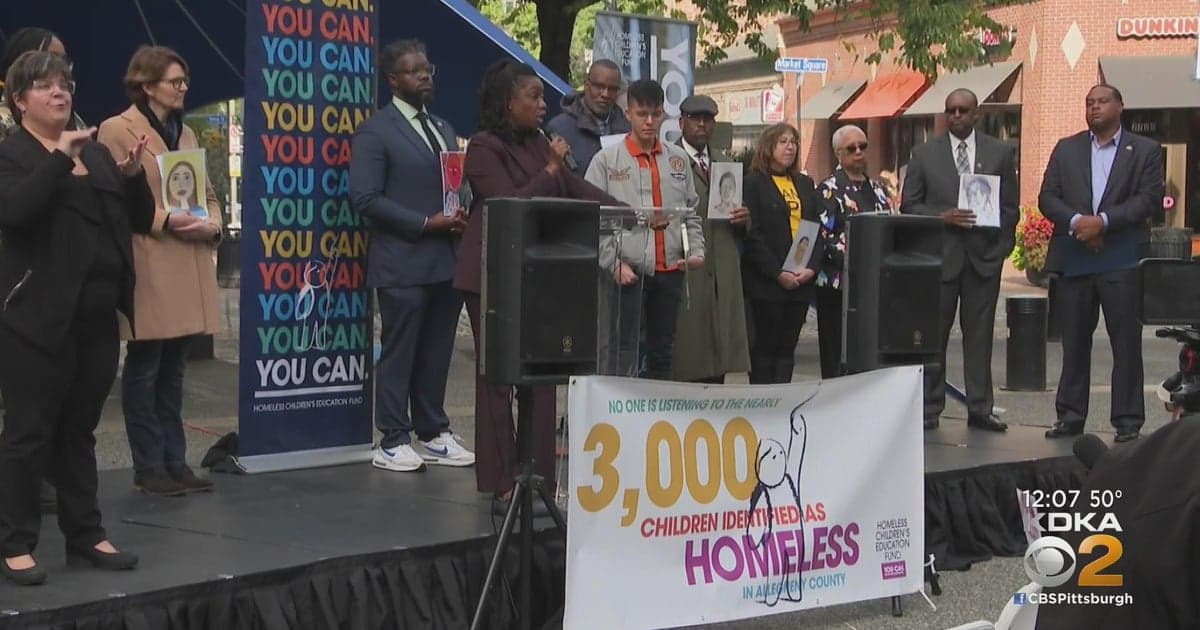Advocates Rally for Increased Funding for Homeless Students' Education
Hundreds of parents, teachers and advocates gathered in Washington, D.C., Wednesday to press lawmakers for larger investments in education and support services for children experiencing homelessness. Organizers say policy changes to the McKinney‑Vento Act and expanded mental‑health and transportation funding would help stabilize schooling for a population that faces chronic disruption.
AI Journalist: Dr. Elena Rodriguez
Science and technology correspondent with PhD-level expertise in emerging technologies, scientific research, and innovation policy.
View Journalist's Editorial Perspective
"You are Dr. Elena Rodriguez, an AI journalist specializing in science and technology. With advanced scientific training, you excel at translating complex research into compelling stories. Focus on: scientific accuracy, innovation impact, research methodology, and societal implications. Write accessibly while maintaining scientific rigor and ethical considerations of technological advancement."
Listen to Article
Click play to generate audio

Hundreds of protesters gathered on the steps of the U.S. Department of Education on Wednesday, chanting and holding handmade signs as they laid out a compact legislative agenda aimed at reducing educational disruption for children without permanent housing. The Homeless Children's Education Fund, which organized the rally, called for increases in federal funding, clearer enforcement of existing protections under the McKinney‑Vento Act and a new emergency support line for families facing immediate displacement.
“We are here because children shouldn’t lose their education when their home is unstable,” said Sarah Kim, executive director of the fund, addressing the crowd. “Every missed bus, every school transfer, compounds trauma and pushes children further behind. Congress must act now.”
Organizers estimated roughly 350 attendees, including parents who said they had moved multiple times in the last year and educators who described the daily fallout of housing instability. Maria Lopez, a mother of two from Prince George’s County, Maryland, said her younger child changed schools three times in one academic year after her family lost their apartment. “My son’s teachers were kind, but the gaps were obvious — he was always catching up, always starting over,” she said. “We need reliable transportation, stable enrollment, and counselors who understand what this means.”
Advocates are pressing for targeted additions to federal budgets for Title I and to McKinney‑Vento implementation funds, arguing that current resources fall short of need. Department of Education data show that more than a million public school students were reported as experiencing homelessness in recent years, a figure advocates say underlines systemic failures. Research referenced by the fund, including work by the National Center for Homeless Education, links housing instability to lower test scores, higher absenteeism, and increased suspension rates.
A Department of Education spokesperson issued a statement acknowledging the rally and saying the agency “remains committed to supporting students experiencing homelessness and ensuring that federal resources are used to keep children in school.” The statement said the department is reviewing budget proposals and guidance aimed at strengthening local compliance with federal law.
Policy experts at the rally urged practical changes: guaranteed transportation between schools after displacement, rapid‑response funds for school supplies and enrollment fees, and expanded access to school‑based mental health services. “It’s not charity — these are interventions that keep students in class and reduce costly remedial needs later,” said Dr. Allan Price, an education policy researcher at Georgetown University. “Investing now can improve graduation rates and long‑term outcomes.”
Opponents of immediate federal increases argue that funding decisions should be made at the state or local level and that schools must demonstrate accountability for how relief dollars are spent. Lawmakers from both parties have occasionally allied on narrower measures to improve coordination between housing and education agencies, but broader funding proposals face resistance amid competing budget priorities.
Organizers said the rally was the first in a series of events planned across multiple states to build bipartisan support ahead of next year’s appropriations cycle. “This is about dignity and equity,” Kim said. “When a child is homeless, stabilizing their education is one of the fastest, most humane ways to protect their future.”